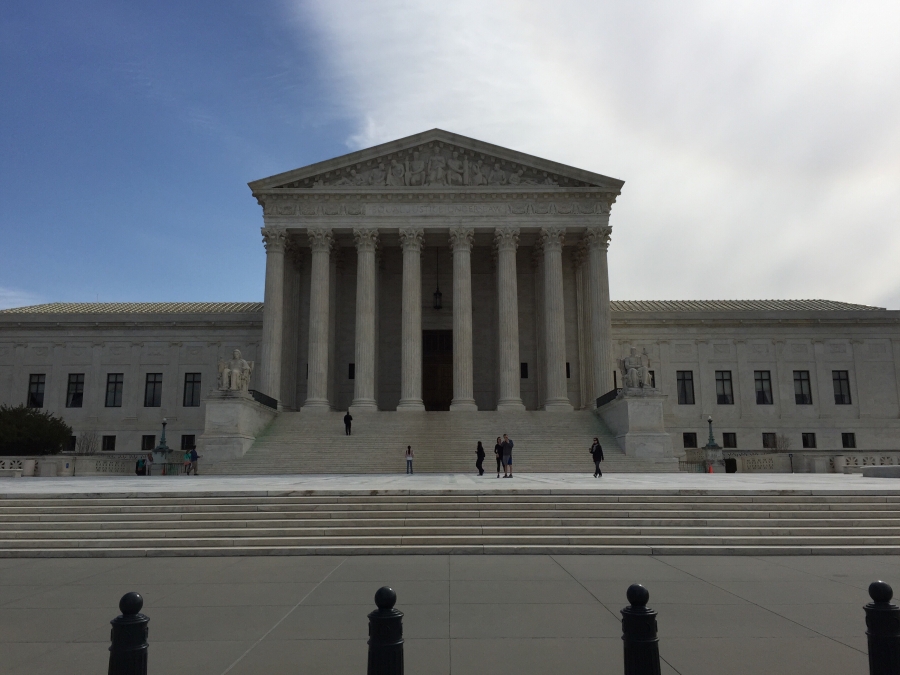
- Details
- By Native News Online Staff
WASHINGTON — Last July the U.S. Supreme Court ruled in the McGirt v. Oklahoma that a significant swath of eastern Oklahoma remains American Indian land for certain legal purposes.
It was a major victory for tribal sovereignty and the Muscogee (Creek) Nation.
In a 5-4 decision, the country’s highest court ruled that Congress never “disestablished” the 1866 boundaries of the Muscogee (Creek) Nation, which encompasses three million acres and includes most of the city of Tulsa. The ruling reaffirms that the land promised to the tribe by treaty remains rightfully theirs.
Want more Native News? Get the free daily newsletter today.
The decision barred prosecutions of American Indians on those lands by state and local enforcement. The ruling said tribal citizens must face justice in tribal and federal courts.
As the result of the Supreme Court’s decision last July, there have been several convictions overturned of cases that were tried in Oklahoma state courts.
On Wednesday, the Supreme Court said it would temporarily block a decision from a Oklahoma Court that overturned a state conviction of a death row inmate. The case involved the conviction of Shaun M. Bosse, a non-Native man, who was sentenced to death for the brutal murder of a mother and her two young children. Bosse was convicted of stabbing Katrina Griffin (Chickasaw) and her eight-year-old son to death, then locking her six-year-old daughter in a closet before setting their home on fire.
Bosse’s attorneys appealed his conviction because the victims were tribal citizens and happened on trial land.
Citing the McGirt decision, the Oklahoma Court of Criminal Appeals agreed and threw out Bosse’s conviction. The state court gave Oklahoma state prosecutors 45 days to ask for a review by the U.S. Supreme Court.
Oklahoma Attorney General Mike Hunter asked the U.S. Supreme Court for the stay while the state of Oklahoma could pursue an appeal.
Hunter told the U.S. Supreme Court justices that the Bosse case was only one of hundreds of cases in the pipeline. Hunter wrote retrials would not be possible given statutes of limitations, the loss of evidence and limited resources.
In a brief unsigned order on Wednesday morning, the U.S. Supreme Court put the state court’s ruling on hold until Oklahoma can file its petition for review.
If that petition is denied, the court indicated, then the state court’s ruling can go into effect; if the petition is granted, then the ruling will remain on hold until the Supreme Court issues its decision.
More Stories Like This
Native News Weekly (August 25, 2024): D.C. BriefsUS Presidents in Their Own Words Concerning American Indians
Star-Studded Livestream to Boost Native News Online’s Year-End Campaign
Monday Morning (December 8, 2025): Articles You May Have Missed This Past Weekend
Native News Weekly (December 7, 2025): D.C. Briefs
Help us defend tribal sovereignty.
At Native News Online, our mission is rooted in telling the stories that strengthen sovereignty and uplift Indigenous voices — not just at year’s end, but every single day.
Because of your generosity last year, we were able to keep our reporters on the ground in tribal communities, at national gatherings and in the halls of Congress — covering the issues that matter most to Indian Country: sovereignty, culture, education, health and economic opportunity.
That support sustained us through a tough year in 2025. Now, as we look to the year ahead, we need your help right now to ensure warrior journalism remains strong — reporting that defends tribal sovereignty, amplifies Native truth, and holds power accountable.
 The stakes couldn't be higher. Your support keeps Native voices heard, Native stories told and Native sovereignty defended.
The stakes couldn't be higher. Your support keeps Native voices heard, Native stories told and Native sovereignty defended.
Stand with Warrior Journalism today.
Levi Rickert (Potawatomi), Editor & Publisher

